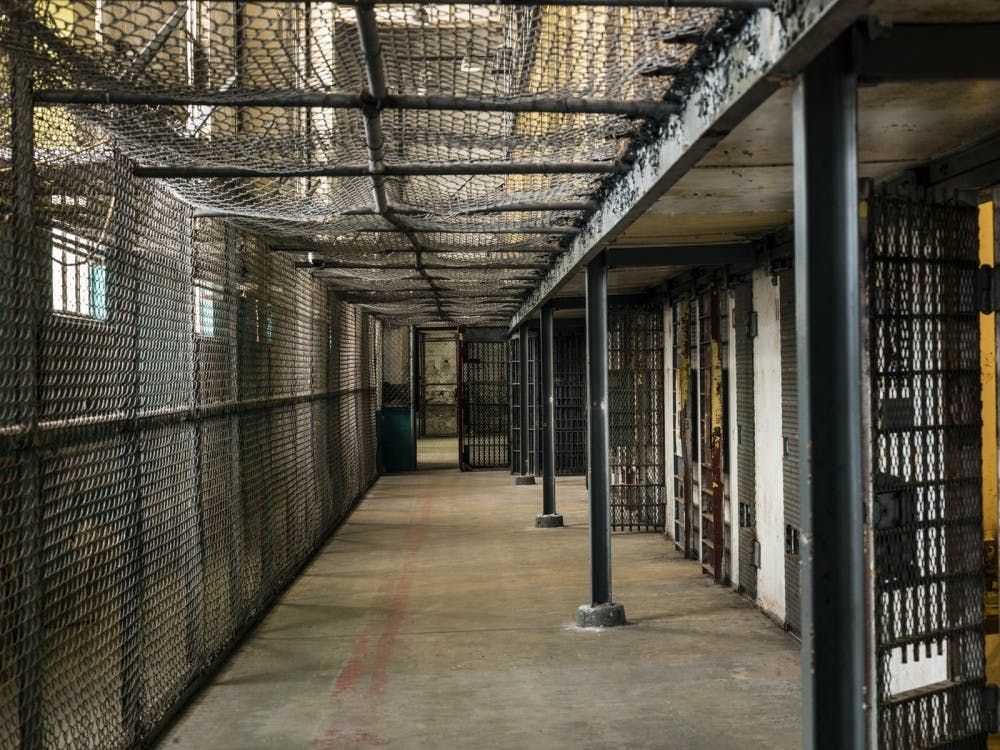In late May, a horrific story broke from the Hampton Roads Regional Jail about inmate Tyrone Brown. Brown died during an appointment to treat his cancer after having missed at least twelve previous appointments while in custody at the jail. Brown had filed multiple complaints in the months leading up to his death, citing lack of proper care for his health by prison officials. Sadly, Brown’s treatment is not especially anomalous at the Hampton Roads Regional Jail. A report published by the Justice Department in December 2018 concluded that the jail’s practices may be considered cruel and unusual punishment, may violate the Americans with Disabilities Act, and could even be considered discriminatory. Virginians should take Brown’s death and the Justice Department report as a necessary wake-up call to the importance of state prison reform, both to alleviate the suffering of inmateslike Brown and to advance the national conversation on prison reform.
The conditions at the Hampton Roads Regional Jail are “cruel and unusual”. The jail houses most of the region’s sickest inmates and is the largest mental healthcare facility in the state. However inmates such as Tyrone Brown report being unable to access their medical care or mental health resources, often with fatal consequences. Mental healthcare is incredibly lacking, as can be seen in the case of Jamycheal Mitchell, who stole $5 worth of snacks while suffering from delusions brought on by his bipolar disorder and schizophrenia. Officials misplaced two different court orders sending him to a mental health facility to regain competency, and he died while in custody of the Hampton Roads Regional Jail of “wasting disease.” The scale of the Department of Justice’s proposed solution to the conditions at the jail — including hiring 113 more staff members and a full-time psychiatrist — highlight how truly horrific conditions are.
Efforts to improve conditions at the jail have also been glacially slow or blocked. In 2017, legislation that would have provided $5 million more in funding to alleviate staffing shortages died in committee. The DOJ investigation that has exposed the worst abuses of the jail took two years to complete after it was requested in September 2016 by Attorney General Mark Herring — and at least eight inmates died in the interim. This callous mismanagement of life-and-death conditions for inmates should be the source of far greater public outcry.
The Hampton Roads Regional Jail is unfortunately not unique in either its problems or its failures to address them. In March, the Riverside Regional Jail in Chesterfield was also reprimanded for its poor treatment of mental health conditions, and Virginia also struggles with how law enforcement interacts with non-criminal mental health patients. Nationally, commonsense reforms to prevent cruelty towards prisoners have historically come very slowly. The Supreme Court held that the 8th Amendment prohibits executing those who are insane in Ford v. Wainwright in 1986, that it prohibits executing those with intellectual disabilities in Atkins v. Virginia in 2002, and that it prohibits the execution of juveniles in Roper v. Simmons in 2005.
Despite the general shameful history of this discussion, there has been some encouraging recent progress. The FIRST STEP Act passed and signed by President Trump in December. Under its provisions, federal prisoners must be housed within 500 miles of their families, minimum sentences will be lowered, and some sentences will be retroactively lowered to address racial disparities in length of sentence.These policies are a good beginning on the road to preventing unfair treatment of inmates.
However, this act alone does not go far enough to reduce mass incarceration and prevent recidivism — because most U.S. prisoners are incarcerated in state or local prisons. Local action is necessary, and the FIRST STEP Act signals bipartisan federal support for such local action if it were to be forthcoming. However, all changes should focus the discussion on the humane treatment of prisoners, which the FIRST STEP Act addresses Despite the successes of these provisions, they should continue to spark the conversation about other prison reforms, such as dealing with prisoner abuse and neglect.
Virginians, however, should not need such extra motivation to reform our prisons and general criminal justice system. The suffering of one individual like Tyrone Brown or Jamycheal Mitchell — not to mention the many others damaged or killed by the Hampton Roads Regional Jail alone — should be enough to motivate us to take action and solve these problems in the Commonwealth.
There is significant cause for hope for progress in Virginia especially, as the Commonwealth has the lowest recidivism rate in the nation at 22.4 percent. Though these statistics are good, Virginia must re-focus on protecting the rights of inmates and ensuring they have access to proper medical care and mental health care. We can do much, much more to further our national conversation on incarceration and to support the health, welfare and rights of our own citizens. Virginians must act now to reform our prisons and criminal justice system.
Katherine Viti is an Opinion Columnist for The Cavalier Daily. She can be reached at opinion@cavalierdaily.com.







